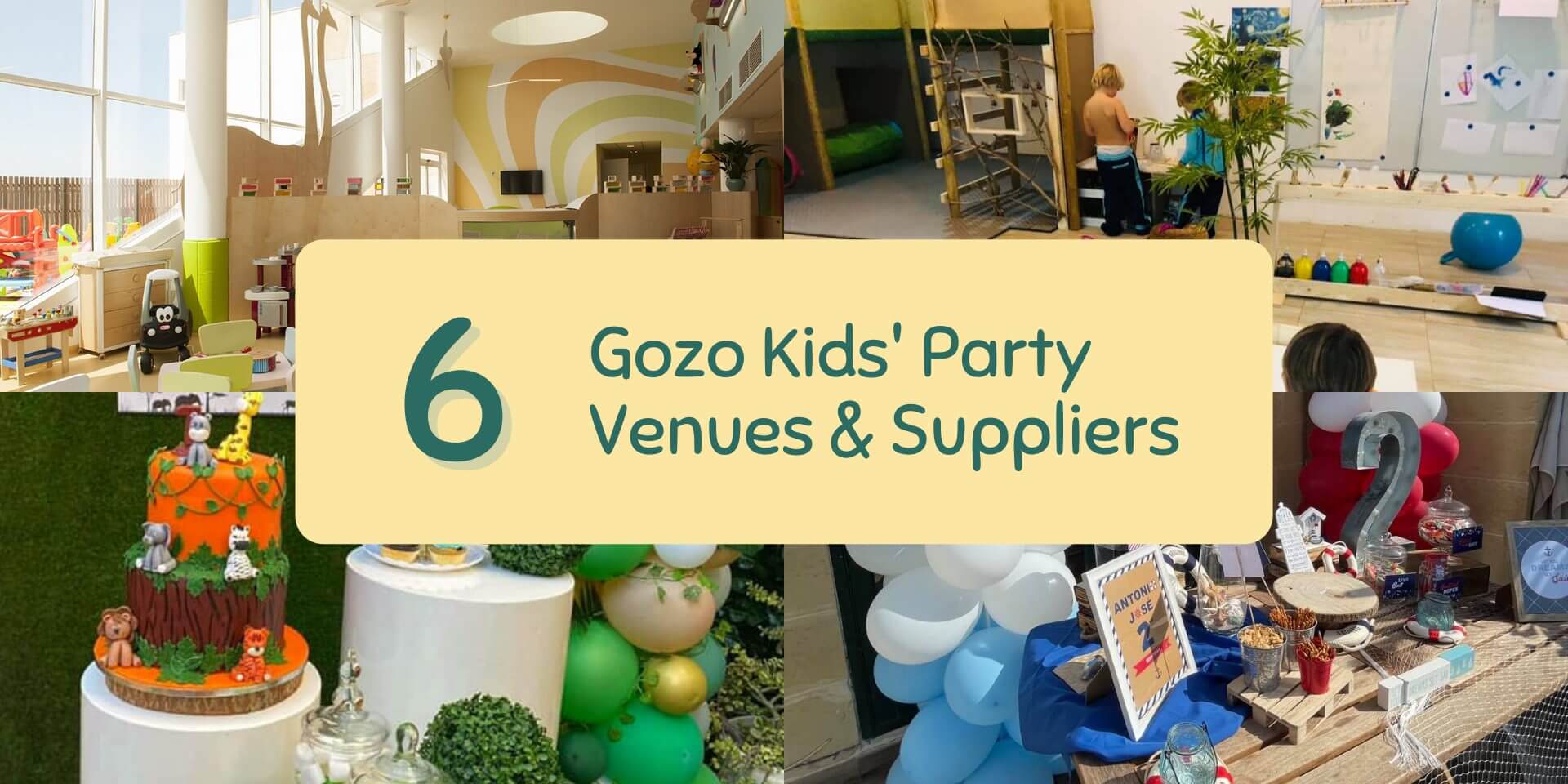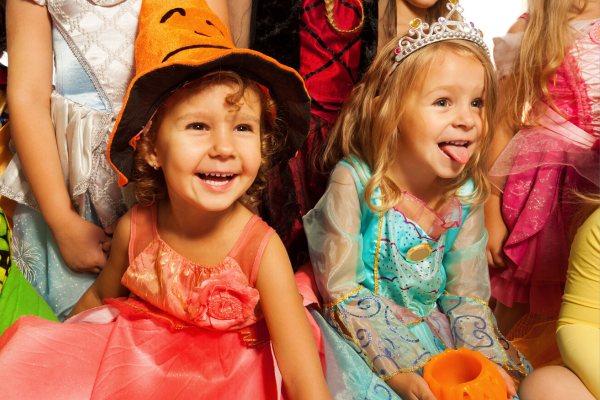April is Autism Awareness Month. We wanted to give a voice to parents in our community who are raising a child on the autism spectrum. Enter: Audrey Komrij Jones.
Audrey is a Malta-based working mother and autism advocate. She and her husband Jetze are the proud parents of Saskia, known as Sas – an energetic 10-year old girl on the autism spectrum.
The following are her own words, sharing her personal experience as a parent in Malta.
What mothering a child with autism in Malta has taught me.

1. Even if you know that your child is different deep down, an official diagnosis can still break you.
I knew my daughter had autism when she was less than a year old, but when we got the official diagnosis at age 3, I was heartbroken. I realize now that acceptance is a process, and whilst I thought I was OK with it all, hope is the last thing to die.
2. Forget everything you thought you knew about autism.
Growing up, I didn’t know much about autism, as it was limited to movies like Rain man, and nowadays The Good Doctor. Individuals on the spectrum are not all awkward geniuses. Not all of them have a special skill. Some may go through life being unable to utter a single word. Being asked constantly if she is good at maths (she isn’t), can be annoying, but admittedly it is probably something I myself would have asked before I was thrown into it.
3. Being open is always best.
Or rather, it was best for us. When I decided to be vocal about my daughter’s condition I was worried. I was worried I would be limiting her by telling society what her issues were. I even questioned if her issues would suddenly become manageable and I would be penalizing her when it comes to a job interview. Now I know that being open was the best thing I could have done, and people have thanked me for teaching them about autism.
4. People can be unkind.
We have been through some horrific experiences, which have left us physically ill, broken and just disgusted at humanity in general. However, it is important to remember that these incidents are few and far between and to just walk away from the nastiness. People like that do not deserve to have any power over you.
 5. People can be very kind.
5. People can be very kind.
We have found so much support from people. The school she attends has accommodated her needs and gone over and above what they would be required to do on an educational level. Her peers encourage her and are genuinely in awe of her musical abilities and cheer her on during music lessons. Restaurants accommodate her every need, and do so out of kindness.
6. The lack of subsidized therapy is shocking.
When we moved back to Malta, we based that decision on quite a few factors. While I did not know then that Sas was autistic, I still feel it was the best decision we could have made. However, I say this from a position of privilege, since my husband and I both have good careers.
The free therapy services offered locally are nowhere near enough to help a child progress, and funding them yourself can run into thousands per month. I am trying to lobby for the Government to realize that this is a huge disservice. It breaks my heart when people ask me to recommend a therapy service, when I know they will be unable to afford it.
7. It can be lonely.
No two individuals on the spectrum are the same, so while other parents with autistic kids can be a great support, no one will ever understand exactly what you are going through. Seeing friends’ children grow up and hit their milestones and start to experience things that typical tweens do can be gut wrenching, as yet again your child gets left behind. But it gets easier as time passes.
8. Discrimination will become an everyday thing.
Your child will be unable to attend activities without a carer present. This can be difficult to find and fund, as very few cater for kids with other needs. Whilst you may have dreamt of sending your child to dance classes or football, the reality is that you will be ferrying them to therapy classes instead. You also won’t be that mum who can offer to carpool, because giving others responsibility for a child with no sense of danger is not fair.

9. You cannot do it alone.
Especially since the Government seems to think that limiting the number of hours it will fund for an LSE for a private summer school is a good idea. It seems that suddenly, parents of kids with autism do not have to work in summer, and do not need all the help we can get. I’m blessed with a wonderful mum who plays a huge part in Sassy’s upbringing.
10. The guilt never quite goes away.
I do not feel any guilt when it comes to blame. I do not believe anything I did caused this, nor did any vaccination. But I do feel guilty that I was perhaps not present enough while she was growing up, as I was working in order to fund her therapy. I think this is a feeling most working parents share.
11. Bullying can come from odd places.
Call people out if they stare at your child in disgust. Sadly, the worst looks we got were from mothers. I normally ask if they would like to take a video or a photo and start posing like a fool next to my stimming daughter. Right now, there is also some controversy in the autism community where some people do not feel that parents like me have the right to speak for her, and only other autistics should be able to do that. Right. Not happening. We can listen to each other without the need for either side to dictate what they think is best.
12. Curiosity is OK.
I love it when I overhear a child asking their mum why my daughter is flapping her arms and when their mum explains about autism. Sometimes they get a ‘don’t stare’ in response, which is fine as it is a knee-jerk reaction. It would be better to tell them ‘say hello’.
13. Love does not need words.
It is a cliché, sure. But when my daughter could not speak at all, the hugs she gave me were the best. They said everything that needed to be said.
14. Acceptance is difficult.
It will probably never be complete. Wondering who your child would be in different circumstances is OK.
15. Grief is a natural feeling.
This is an odd one. We are lucky. Our children are healthy. Yet going through a mourning process at diagnosis stage is common. Letting go of the life you had envisaged is difficult, and it’s OK to cry. Just try your best to pick yourself up afterwards.
16. Appreciate your child’s qualities.
My daughter is stubborn, resilient and so self-confident. She will get what she wants in the end, and has been known to build complicated structures to get to the chocolates I hid on top of the fridge. She does not care who is watching, does not notice the ugly looks, and will sing and dance where she wants to. I can’t help but admire that. I am yet to stop caring what others think about me.
17. Disabilities can make or break relationships.
The added pressure and difficulties to navigate through every day life could break the strongest marriages. It isn’t easy, but remembering to be a partner to someone and not just a parent is important.
18. The minor achievements are the most glorious.
When my daughter was potty trained, she was much older than her peers. She was 5. When she said her first word (apple), she was over 2 years old. She is currently 10 years old, and only now is mental addition a possibility. We know how much hard work went into grasping all these skills, so when they happened, we celebrated ten times as hard.
19. Nonverbal kids can still give you attitude.
I always joke that Sas is a teenager trapped in a 10-year old’s body. The eye rolls, the look of exasperation when I interrupt her, the irritation when I demand that screen time is over are all huge parts of her character. She’s also really funny and makes us laugh pretty often. Do not say things like ‘she’s an angel’. She isn’t. She has no malice, but she knows very well when she is doing something that is right or wrong, and moves with stealth to implement her plans to get her way.
20. She listens far more than I think she does.
Remember that. Always treat EVERYONE with respect. Do not assume that autistic people are not capable of hearing your words, so always be kind.
21. It helps to find the funny side of things.
This is what gets me through life. Laughter is important, even if keeping a sense of humour can be difficult.
22. I hate being called strong.
People mean it as a compliment, but it does start to grate after a while. I am not strong. I am just a mother doing what I have to do. Because ultimately, there was no other choice. And everyone else would do the same in my shoes.
23. Names can be hurtful.
This is a tricky one, as I do feel that sometimes society goes overboard when trying to be PC. But I loathe seeing people call each other a retard online. My daughter’s issues mean she is literally retarded, as certain skills will hopefully develop later in life, if ever.
The English vocabulary is so full of wonderful names people could use – surely we could avoid the ones that mock disabilities, if we really need to be keyboard warriors?
24. She isn’t less. She is actually more.
Society may view people with a disability as less, but that is so far from the truth. The word itself is negative, and focuses on what one cannot do versus what they can do.
She is more because she laughs harder, hugs harder and made us work harder to be better people than we were. She has made us appreciate things which others would normally ignore, and viewing life from this point of view can be beautiful.
Autism Awareness shouldn’t be restricted to the month of April. Follow Audrey’s Facebook page for regular updates on her family’s adventures, and to continue learning about life on the spectrum from a real Malta mum!



